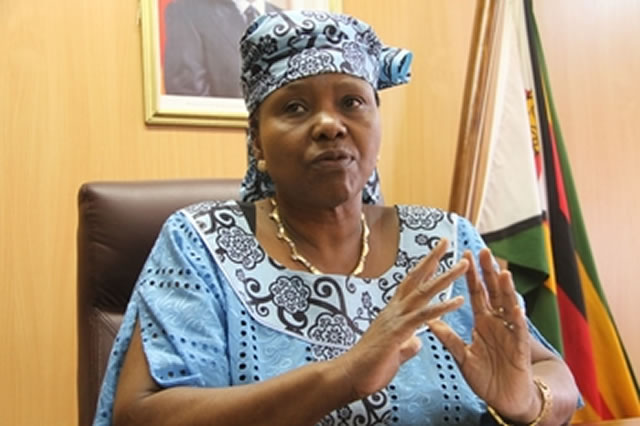Editorial Comment: Zanu-PF gaining ground in opposition strongholds

For some Zimbabweans, their eighth parliament started off in 2013 with an ideal make-up, the pro-people party dominating and other parties only making up the numbers.
They got a bonus on Wednesday when Zanu-PF added 14 more seats to the 160 of the 210 contested ones it held since July 2013. This means that the revolutionary party is now directly elected in 174 constituencies. Its total strength in the National Assembly is 211 seats after the 37 it won through proportional representation are added.
MDC-T emerged from the by-elections 14 seats poorer. It won them in 2013 but caused the firing from parliament of 21 MPs following a split and proceeded to boycott the by-elections. Now, the party is holding 35 elected seats. When proportional representation seats are added, the opposition party now has 56 members in the National Assembly.
Of the 16 constituencies contested, Zanu-PF already had two, Headlands and Hurungwe West, which it retained.
The ruling party rolled out a strong campaign like this was a general election. Vice-President Phelekezela Mphoko addressed rallies in Manicaland, Matabeleland North, Harare and Bulawayo. Vice-President Emmerson Mnangagwa did likewise in Bulawayo, Hurungwe West, Tsholotsho North, Mutare and Harare. Politburo members, Ignatius Chombo, Saviour Kasukuwere, Simon Khaya Moyo, Obert Mpofu and others were also active in the 16 constituencies.
Wednesday’s “mini-general election” was a timely warm-up for Zanu-PF ahead of 2018 even though the party faced only token opposition from small parties and some unknowns who participated as independents.
Zimbabwe takes some lessons from the by-elections, one of which is that hard work pays. For Zanu-PF, nothing will ever be left to chance again, 2008 taught them. That is why high-profile cadres came down from their top positions to address rallies, supporting efforts of the candidates and other local structures.
Professor Jonathan Moyo, who achieved the highest tally in the by-elections when 11,695 people voted for him in Tsholotsho North, spent much of the past two months on the ground, as did Cde Tshinga Dube in Makokoba. Prof Moyo was not only campaigning but also initiating and implementing concrete community projects that won the election so overwhelmingly.
Wednesday highlighted that the Zimbabwean electorate has no affinity for independent candidates, unless of course, one is extraordinarily popular. Prof Moyo in 2008 and Jonathan Samukange in July 2013 are some of the few who have won as independents. Prof Moyo got 3,532 votes in 2008 as an independent candidate compared to 11,695 he achieved as a Zanu-PF representative this time. Samukange, who some say was unfairly sidelined by the Mashonaland East Zanu-PF hierarchy led by the recently fired Ray Kaukonde, narrowly beat the official ruling party candidate, Cde Eric Navaya. He polled 7,879 votes to Cde Navaya’s 7,742. Our people tend to vote for political parties they feel can make a difference, not individuals.
Temba Mliswa, sacked by Zanu-PF a few weeks ago, thought he was proving a point when he contested the Hurungwe West by-election as an independent but got 4,239 votes, losing to Cde Keith Guzah who got 5,961. Mliswa’s tally is a big drop from 8,485 he amassed while representing Zanu-PF in 2013.
As an MDC-T candidate in 2013, Albert Mhlanga polled 6,100 votes to win Pumula constituency but going solo this week, he received 134 votes, far lower than the 2,477 that Cde Godfrey Malaba amassed in winning the seat.
Zapu touts itself as the authentic political representative of people in Matabeleland since Dumiso Dabengwa broke away from Zanu-PF in 2008. However, the people rejected his party once more in the by-elections. His most popular candidate, Michael Bathandi Mpofu mustered 777 votes in Pumula.
To some extent, Wednesday served as further confirmation that MDC-T is losing ground in local politics. Party leader Morgan Tsvangirai led a “No Reforms, No Elections” campaign, addressing small rallies across the country.
The electorate ignored him and turned out to vote. If indeed his message resonated with the masses, they would have stayed away but in Headlands, where Cde Christopher Chingosho polled 11,104 votes and Tsholotsho North, the voting figures are comparable to those normally recorded during general elections. Despite this having been a by-election, Cde Chingosho scored higher votes than the 10,975 that now axed MP, Didymus Mutasa, got in the 2013 general election.
While Zanu-PF is happy for getting its first directly elected legislators in Bulawayo in 15 years, its winning margins in the five constituencies in the city weren’t good enough.
The best performer, Cde Dube got 3,182 votes down from 3,539 in 2013. Cde Malaba’s 2,477 is down from 2,877 two years ago.
There is a decline, which is expected in by-elections. Nevertheless, we see a continuing challenge for the ruling party in the city in terms of potential for growth in popularity. Harare is the other problematic constituency for Zanu-PF but the last general election witnessed six of its candidates winning and those who lost scored an average of 5,000 votes. Zanu-PF has to do more in Bulawayo so that when stronger competition shows up next time, its representatives can stand a chance to perform better. Meanwhile, they can celebrate.
But the national picture remains positive.












Comments